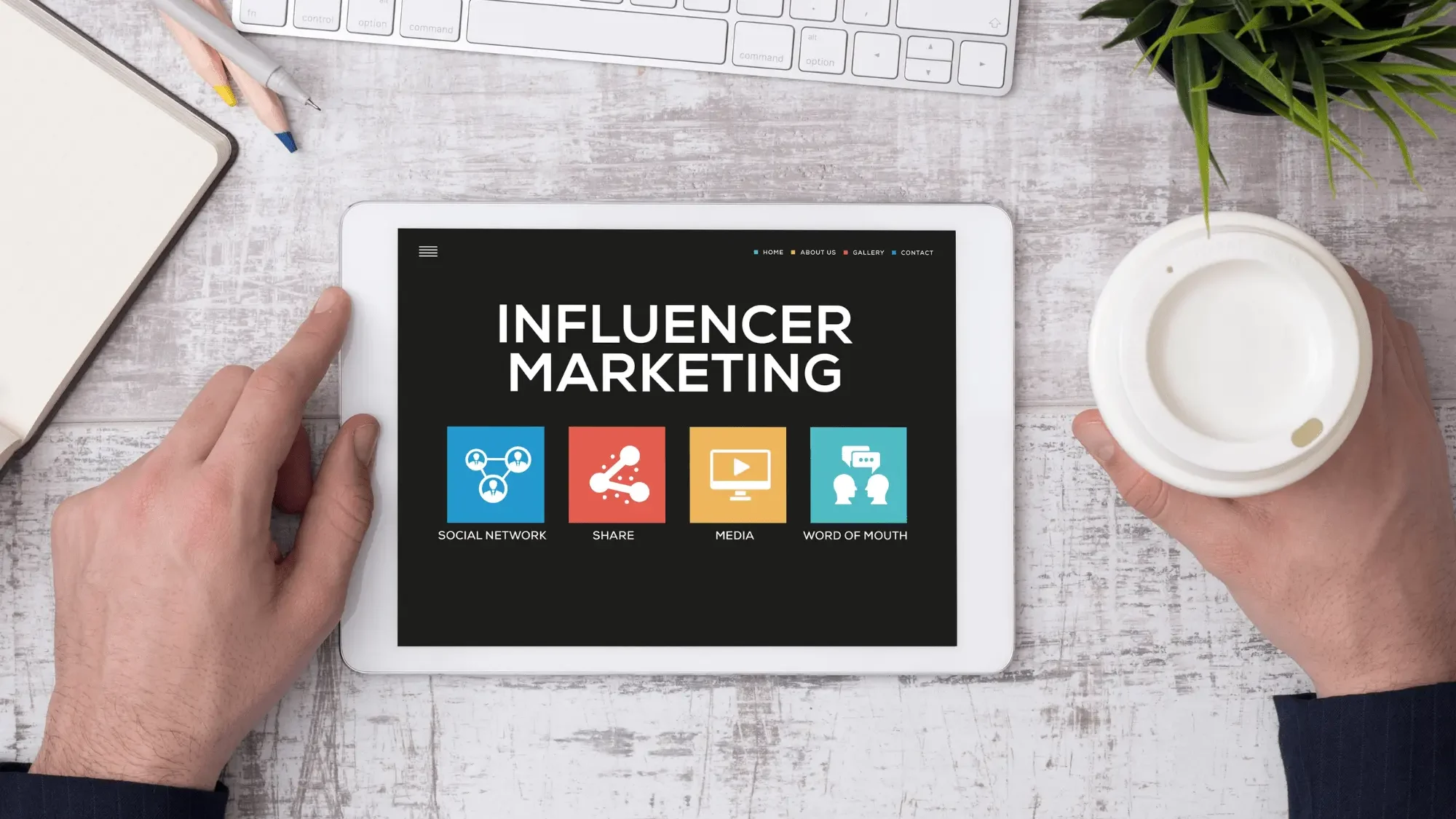If you are in need of influencer marketing, reach out to us. We will conduct a thorough analysis and pick up the best influencers which align with your brand’s image. We will even go as far as negotiating the best deal for you. Now, dive in to learn more about the what, how, benefits and potential drawbacks of influencer marketing.

Influencer marketing is a powerful strategy that involves collaborating with influential individuals to promote a product or service to their audience. By leveraging the credibility and reach of these influencers, companies can effectively showcase their offerings to a larger consumer base.
The process begins with identifying suitable influencers who align with the brand’s target audience and values. This involves analyzing their content, engagement, and audience demographics. Once potential influencers are identified, partnerships are established through negotiations and agreements that outline the terms and conditions.
The success of influencer marketing lies in the trust and connection between influencers and their followers. By associating with trusted individuals and their recommendations, brands can tap into a highly engaged and loyal audience. Through the careful selection of influencers, effective partnerships, and compelling campaigns, companies can maximize the impact of influencer marketing in reaching and influencing their target market.
The role of influencer marketing in growth strategies
Influencer marketing plays a crucial part in growth strategies by enabling businesses to expand their reach to a wider audience. By collaborating with influencers who have a substantial following, companies can tap into their existing fan base and gain exposure to a larger demographic. This helps to increase brand awareness and generate new leads.
Endorsements from influential individuals hold significant power and can greatly influence consumer behavior. When a respected figure promotes a product or service, it instills trust and credibility in the minds of potential customers. This can drive sales and boost revenue for the business.
Influencer marketing also offers the advantage of targeted advertising. Businesses can strategically choose influencers who align with their target market and niche. This ensures that their message reaches the right audience, resulting in higher engagement and conversion rates.
Moreover, influencer marketing allows businesses to leverage the creative abilities of influencers. Through sponsored content, influencers can showcase products or services in a visually appealing and engaging manner, making it more likely for their followers to take action.
To summarize, influencer marketing is a powerful tool in growth strategies. It helps businesses reach a wider audience, increase brand awareness, and ultimately drive sales through endorsements and targeted advertising.
Different Types of Influencer Marketing Strategies
In digital marketing campaigns, there are several types of influencer marketing strategies that can be used to effectively reach target audiences. This includes:
Sponsored content, where influencers are paid to promote a brand or product through their social media platforms. This can be done through sponsored posts, videos, or stories.
Another strategy is influencer takeovers, where influencers temporarily take over a brand’s social media channels to create and share content that aligns with the brand’s image and target audience.
Affiliate marketing is also commonly used, where influencers earn a commission for every sale or lead generated through their unique referral link.
Contests and giveaways are effective strategies to engage audiences and increase brand awareness. Influencers can host giveaways on their social media platforms, encouraging their followers to participate and share the brand’s content.
Brand ambassador programs are long-term partnerships between brands and influencers. These ambassadors represent the brand by promoting their products or services on an ongoing basis.
These influencer marketing strategies are implemented by identifying relevant influencers, negotiating partnerships, and monitoring performance metrics. They are effective in reaching target audiences as influencers have established trust and credibility with their followers. By leveraging their influence, brands can tap into their followers’ interests and preferences, resulting in increased brand awareness, engagement, and conversions.
How to find and choose the right influencers for your brand
Choosing the right influencers for your brand involves having specific criteria in mind. Firstly, ensure that the influencer’s values align with your brand’s values. Then, consider if their followers match your target audience. Do they have a significant number of engaged followers? Do their followers trust and engage with their content? These are important questions that need to be answered.
To find influencers that align with your brand values and target audience, start by researching influencers in your industry or niche. Look at their content and determine if it resonates with your brand’s message. Analyze the engagement rates on their posts to gauge the level of interaction they have with their followers. High engagement rates indicate an authentic influencer as their followers are actively engaged with their content.
Authenticity is crucial when choosing influencers for your brand. You want to ensure that their content feels genuine and not forced. Look for influencers who have a consistent tone and voice in their posts. This consistency builds trust with their followers, making them more likely to trust and engage with the content they create for your brand.
In conclusion, finding and choosing the right influencers involves considering their alignment with your brand’s values, targeting the right audience, and assessing their engagement rates and authenticity. By following these criteria, you can form successful partnerships with influencers that will help promote your brand effectively.
The Future of Influencer Marketing and Its Impact
The future of influencer marketing appears promising, with a significant impact on brands and consumers. Influencers have become powerful brand advocates, leveraging their social media reach to promote products and services. As technology continues to advance, emerging technologies such as artificial intelligence and virtual reality are expected to shape the industry further.
Artificial intelligence can streamline the influencer selection process, matching brands with the right influencers based on target audience and brand values. Virtual reality offers a new level of engagement, allowing influencers to immerse consumers in branded experiences.
However, with these opportunities, challenges are also present. As influencer marketing becomes saturated, authenticity and trustworthiness are crucial factors that influencers must maintain. Brands need to navigate regulations and transparency concerns to ensure their messaging is genuine and compliant.
Still, the evolving landscape presents vast opportunities for both influencers and brands. Influencers can increase their earning potential through partnerships and collaborations, while brands can benefit from the credibility and reach of influencers. It is essential for brands to adapt and embrace the continuous changes in influencer marketing to maximize their success.
Common pitfalls to avoid in influencer marketing
Engaging in influencer marketing can be fruitful; however, there are common pitfalls to avoid. Firstly, selecting the right influencers is crucial. Fake followers pose a risk, so it’s important to vet their audience. Additionally, clear expectations and communication are essential to avoid misunderstandings. Researching an influencer’s values and content can save you from partnering with someone who contradicts your brand’s image. Lastly, relying solely on metrics for success can be dangerous. These numbers may not accurately reflect the true impact of the campaign.
Conclusion
Influencer marketing can play a crucial role in your digital strategy by helping you reach a wider audience, build credibility, and increase brand awareness. By partnering with influencers who align with your brand values and target audience, you can leverage their influence to drive engagement and conversions.However, it is also important to assess the downsides associated with influencer marketing prior to starting a campaign to make sure that you are not causing more harm than good to your brand.
If you’ve enjoyed reading, please consider checking out our other articles.

